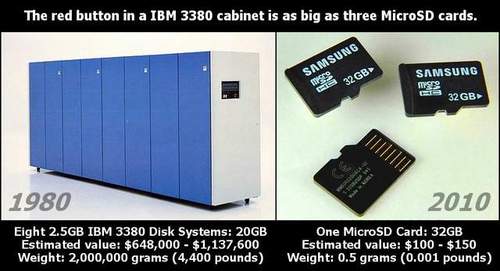This image is making it rounds around the web. When I see something like that, I feel so old…

This image is making it rounds around the web. When I see something like that, I feel so old…

Only by watching things like this can you realize how far have we moved in terms of visual entertainment over the last 100 years. Some effects look ridiculous while it will take some more years to out date the other ones. Enjoy!
[youtube=http://www.youtube.com/watch?v=LP_hAszQPgk]
We had a few discussions about Civilization IV game today in the office. I wasn’t paying much attention as I am not a big fan of strategy games, especially turn-based strategy games. But at some point I was looking at this technology research tree diagram (click for full-sized version, source).

And I couldn’t help to get impressed on how far the world has come in terms of research. And also how much was actually discovered in the last few decades.
Yes, I know, not everything on that diagram is a technology, and not everything was actually researched. But, on the other hand, there are many technologies which were researched and worked on, and they aren’t on that tree diagram.
A diagram like this provides a perspective on how much people knew back in the early days and how much more complex (not necessarily complicated) the modern world is. Of course, when playing such a game against a few opponents, the perspective becomes even more realistic – the more stuff you have researched, the more you can do and more powerful is your nation.
If only now we could incorporate these games with history classes somehow …
The software is checked very carefully in a bottom-up fashion. First, each new line of code is checked, then sections of code or modules with special functions are verified. The scope is increased step by step until the new changes are incorporated into a complete system and checked. This complete output is considered the final product, newly released. But completely independently there is an independent verification group, that takes an adversary attitude to the software development group, and tests and verifies the software as if it were a customer of the delivered product. There is additional verification in using the new programs in simulators, etc. A discovery of an error during verification testing is considered very serious, and its origin studied very carefully to avoid such mistakes in the future. Such unexpected errors have been found only about six times in all the programming and program changing (for new or altered payloads) that has been done. The principle that is followed is that all the verification is not an aspect of program safety, it is merely a test of that safety, in a non-catastrophic verification. Flight safety is to be judged solely on how well the programs do in the verification tests. A failure here generates considerable concern.
The above was written by R. P. Feynman, in Feynman’s Appendix to the Rogers Commission Report on the Space Shuttle Challenger Accident, 1986. More than 20 years ago. Much recommended reading.
Found via Richard Feynman, the Challenger Disaster, and Software Engineering.
Some weeks ago, as part of their 10th anniversary celebration, Google presented Google Circa 2001 (yes, I know, I am doing very old news right now – Slashdot, CyberNet News). Google Circa 2001 is basically the way Google was in 2001, including the web index of those times. What’s the big deal? Well, for those of us who were on the web from back then, it provides for a way to see how things were different.
For example, back in 2001 I was better known as “Leonid Mamtchenkov“, not “Leonid Mamchenkov”. That was due to another spelling in my Russian passport. Also, my web site looked pretty different from what it is now. But it was already a blog, even if in the simplest form. Surprisingly even, I found a few posts that were not migrated to the current archives, or got lost somehow after a few CMS and back-end script changes. I’ll restore them for historical purposes later on.
Oh, sweet memories …